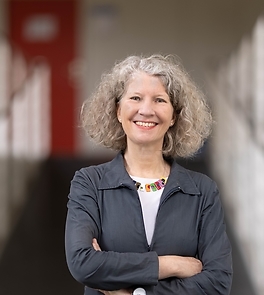Hybrid Format
Public Child Care Services to Refugee Families: Effects on Employment, Well-Being and Integration
C. Katharina Spieß, Federal Institute for Population Research (BiB)
Max Planck Institute for Demographic Research (MPIDR), January 09, 2024

© C. Katharina Spieß
Prof. Dr. C. Katharina Spieß will give a lecture within the Rostock Demographic Seminar Series on the subject of Public Child Care Services to Refugee Families. The event will begin at 2 pm (CET) on January 9, 2024.
Titel: Public Child Care Services to Refugee Families: Effects on Employment, Well-Being and Integration
Co-authors: Ludovica Gambaroa, Sophia Schmitz und Mathias Huebener
Abstract
The Russian invasion of Ukraine has irreversibly changed the lives of Ukrainians, and triggered a major migration flow to other countries, with more than one million refugees arriving in Germany.
This refugee population disproportionally includes women and children, making access to childcare and education services a pressing policy priority. The effects of early education and care services on maternal employment has been a long-standing theme in the economic literature, which has documented the longterm effects on children’s development and on mothers’ earnings trajectories. However, evidence on refugee populations is scarce, so little is known about the potential of early childhood education and care in supporting mothers’ employment, integration and well-being in the context of forced migration.
Our analysis is based on a unique panel data set of Ukrainian refugees arriving in Germany following the Russian invasion (IAB-BiB/FReDA-BAMF-SOEP Survey of Ukrainian refugees). Based on this large and representative data, the paper traces the evolution of children’s access to early education and care services and the employment and integration trajectories of their mothers during their first year in Germany. The empirical approach is based on the observation that most refugees moved to relatives and friends in Germany. The geographic dispersion results in substantial regional differences in the availability of early education and care services that vary by the age of children. We exploit the variation across regions and the age of the youngest child within IV strategies to study effects of facilitated access to early education and care services on mothers’ employment, well-being and integration.
Our results show a significant effect of regional day care availability on children’s enrolment in early education and care, and a significant effect on maternal employment and on the participation in language and integration classes of about 7 to 30 ppt. To check whether unobserved regional characteristics might drive the strong link, we use mothers of older children in the same regions as a placebo group which supports a causal interpretation of our main results. The findings have important policy implications, as they suggest that investing in early education and care services effectively promotes the integration of refugee mothers into the labor market and society, ultimately enhancing their well-being.
About the Speaker
Prof. Dr. C. Katharina Spiess is Director of the Federal Institute for Population Research (BiB). She holds the professorship of population economics at Johannes Gutenberg University Mainz.
C. Katharina Spiess studied economics at the University of Mannheim. In 1996, she earned her doctorate degree at Ruhr University in Bochum. She then worked as project manager at Prognos AG in Basel and Berlin. In 2000, she moved to DIW Berlin, where she worked at the research-based infrastructure unit of the German Socio-Economic Panel (SOEP) until 2012. In 2005, she completed her habilitation (second thesis) at the Technical University of Berlin. From 2006 to 2021, she held a University Professorship for Family and Education Economics at Freie Universität Berlin. She headed the Department of Education and Family at the German Institute for Economic Research (DIW Berlin) between 2012 and 2021. She was a guest professor at Cornell University, a visiting scholar at the University of Washington Seattle, and the Vrije Universiteit Amsterdam.
Her research focuses on population studies, particularly on education and family issues. Her work has been published in well-known field journals, such as the Journal for Population Economics, Journal of Heath Economics, Labour Economics, Journal of Economic Behavior & Organization, and Economics of Education Review. She is a member of various research networks, expert groups, and commissions, including the Scientific Advisory Board for Family Issues at the Federal Ministry for Family Affairs and one of the Scientific Advisory Boards of the Federal Ministry for Education and Research.
Participation
Please register via this survey for online participation. The Zoom link will be sent to you afterwards. The event will begin at 2 pm (CET) on January 9, 2024.
download announcement (PDF File, 34 kB)